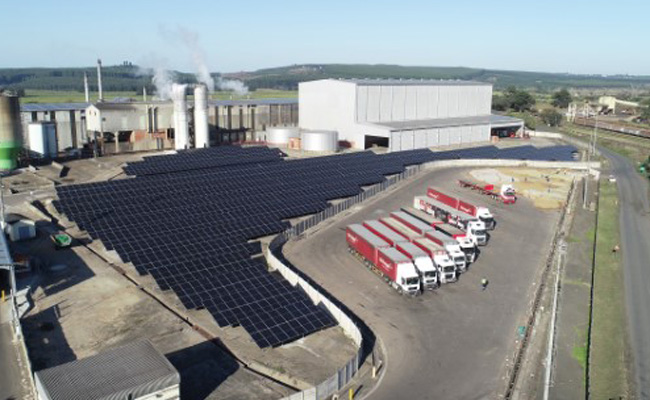From goings-on in politics to info drops in the economic world, we’ve got you covered on what to expect this week.
Politics
MK Constitutional Court application
On Wednesday, the Constitutional Court will hear the MK Party’s urgent application against President Cyril Ramaphosa. The party is challenging Ramaphosa’s actions in respect of the allegations made by KwaZulu-Natal police commissioner Nhlanhla Mkwanazi as irrational and inconsistent with the president’s oath of office. The specific actions in question are the announcement of a judicial commission of inquiry, the placing of Senzo Mchunu on special leave and the appointment of Firoz Cachalia as acting minister of police.
Expiry of US tariff pause
With Friday’s deadline for Washington’s 30% tariff pause rapidly approaching, Ramaphosa’s envoys are under pressure to secure relief for exports before the duties take effect. Japan has already clinched a $550m deal, reducing its tariffs to 15%, and the EU is reportedly heading toward similar terms, underscoring the risk that South Africa could be left at a disadvantage if it fails to strike an agreement this week.
Last Thursday, minister of trade, industry and competition Parks Tau announced that a “condition precedent document” has been signed with the office of the US trade representative. This agreement sets out relevant steps that must be followed before a full trade deal is completed. Without provisional relief by the end of the week, exporters may face cancelled orders, surging logistics costs and widespread job losses across supply chains. South Africa will hope that there will be a further extension to Thursday’s deadline to allow for negotiations.
South Africa Bilateral Relations Review Act
Originally introduced in April by Texas Republican Ronny Jackson, the US’s South Africa Bilateral Relations Review Act passed the House foreign affairs committee 34-16 last week. The act requests a “full review of the bilateral relationship” and is set to impose sanctions on unnamed South African and ANC officials accused of corruption, human rights abuses and undermining US interests through ties to Russia, China and backing the Palestinian cause.
Next steps include a subcommittee markup, where amendments or waivers may be introduced, followed by leadership scheduling for a floor debate. South African diplomats will ramp up engagement this week as they attempt to head off votes or negotiate exemptions before it moves to the Senate. While unlikely to result in any immediate actions against South Africa, the bill highlights the increasing strain in ties with the US under Donald Trump and complicates the negotiations for a must-have trade deal.
Economics
SARB monetary policy committee decision
On Thursday July 31, attention will turn to the South African Reserve Bank (SARB) monetary policy committee’s fourth announcement of the year. Traders are increasingly confident the SARB will extend its rate‑cutting cycle, even after June’s headline inflation rose a little to 3% year on year (still well within SARB’s target).
A cut of 25 basis points to 7% has already been mostly priced in, and some economists are forecasting three more cuts this year. Governor Lesetja Kganyago’s post-decision statement will be closely watched by investors for clues on the terminal rate amid external headwinds from looming US tariffs and domestic fiscal pressures.
Trade and budget balances
Wednesday and Thursday bring updated fiscal figures and July’s trade data, offering a health check of South Africa’s external and public finances. June marked a strong R21.7bn trade surplus, thanks largely to buoyant commodity exports; however, looming US tariffs threaten to eat into this buffer.
On the budget side, May’s figures showed a R10.12bn deficit, a year-on-year improvement to the tune of ~R2bn, but Treasury warns that delayed VAT revenue from the cancelled hike and hefty debt‑service costs will widen the mid‑year shortfall again. Together, these numbers will signal whether the government’s new budget (R52bn short of the last) can withstand new external shocks and maintain investor confidence as South Africa heads into the second half of the year.
Vehicle sales and consumer demand
Total vehicle sales for July, released on Friday at 8.30am, will round off the week. June passenger vehicle sales jumped 18.7% year on year, according to industry body Naamsa, driven in part by last year’s low base and easier financing after the May rate cut.
Continued strength in vehicle sales would indicate that lower borrowing costs are translating into real purchases, despite tariff anxieties and tighter public sector measures. A downturn, by contrast, could signal that households and firms are tightening belts in the midst of uncertain economic headwinds. Pay increases for South Africa’s automotive sector workers still pose a risk to an industry that accounts for more than a fifth of the nation’s manufacturing output and 5% of GDP.

This article is published courtesy of The South Africa Brief, a political newsletter published on Substack which is a collaboration between Paul Berkowitz and Jonathan Moakes. It provides analysis and insight into the new, uncertain era of South African politics heralded by the 2024 general election. Including a specific focus on municipal politics, it will provide full analysis in the run-up to next year’s municipal polls.
Sign up to Currency’s weekly newsletters to receive your own bulletin of weekday news and weekend treats. Register here.











